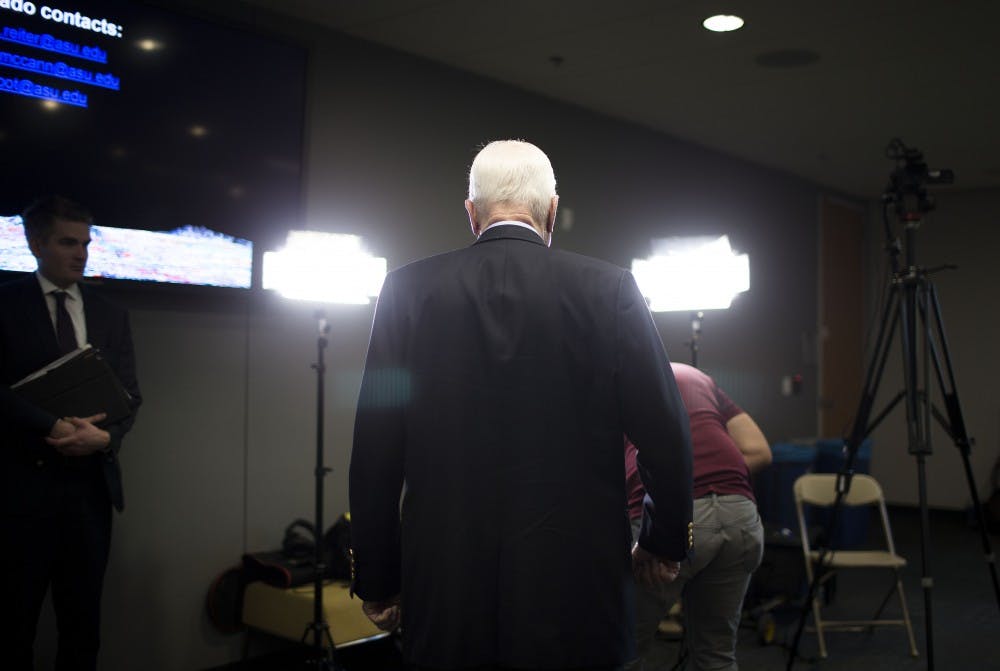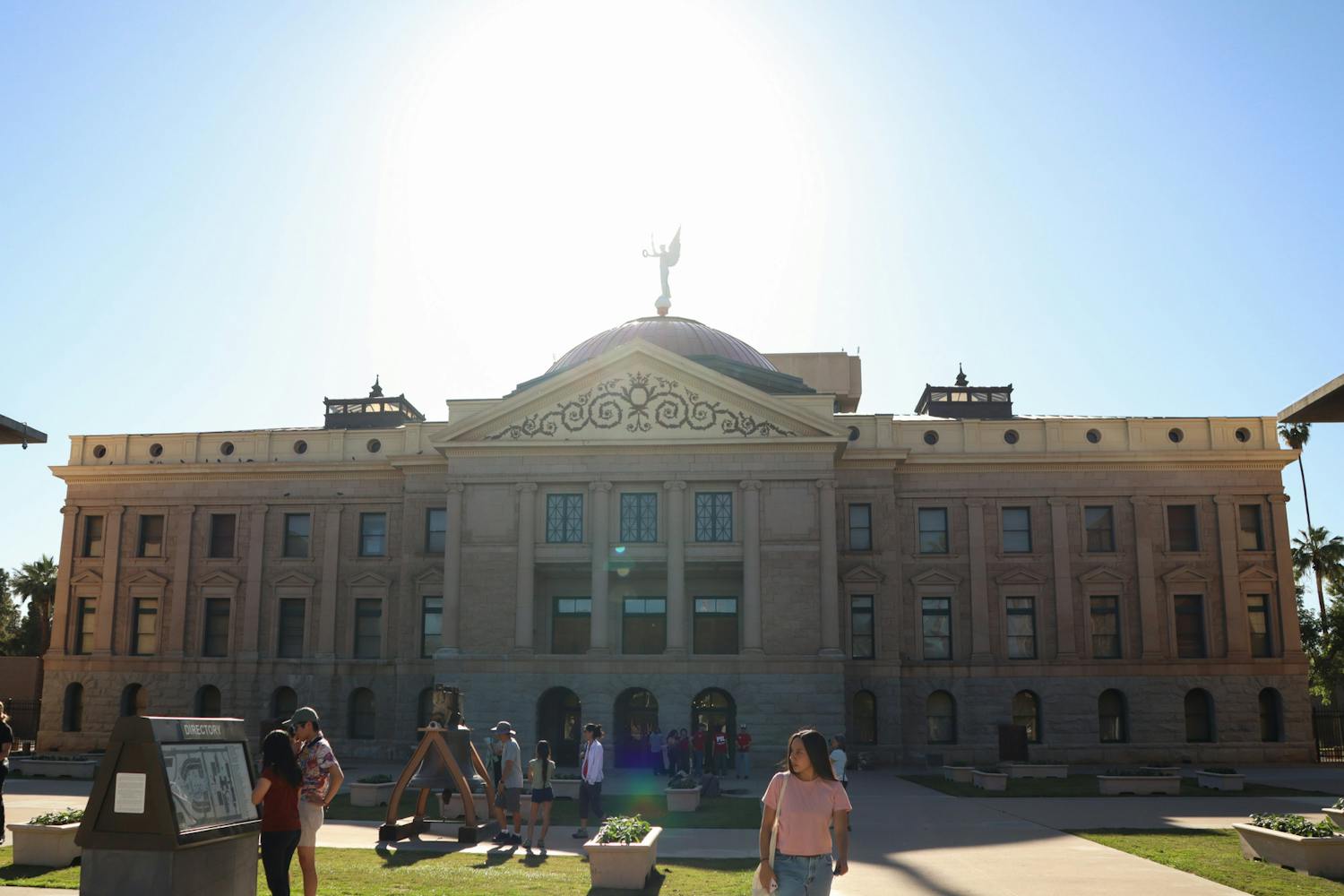Flags are at half-mast across Arizona today in remembrance of the late Sen. John McCain, who passed away in his home in Sedona surrounded by his friends and family Saturday. He was 81 and would have been 82 on Wednesday.
The six-term Senator, Vietnam War veteran and traditional conservative firebrand rose to national acclaim in 1967, when he was captured and held as a prisoner of war in Vietnam for many years.
After his years in the military, he transitioned to public life, retiring from the Navy in 1981 and successfully running a campaign for the House of Representatives in 1983. After two terms in the House he was elected to the Senate, where he remained for the rest of his life.
In recent years he emerged as one of the staunchest critics of the Trump Administration, coming under fire on multiple occasions for the way he voted, and sometimes enduring personal attacks from the president.
Trump famously said McCain was "not a war hero … He was a war hero because he was captured. I like people who weren’t captured,” during an interview, speaking about McCain’s time in the Vietnam war camp. He made the comment during the 2016 presidential election.
McCain disavowed Trump during the election, and committed not to vote for him after an audio recording of Trump making vulgar comments about women surfaced.
Not only did their personalities clash, but McCain was one of the few Republican defectors of Trump's legislative policies.
In one of his final acts in Congress, McCain voted "no" on an effort to repeal the Affordable Care Act by flashing a thumbs-down, in a late night vote. He would later give a speech demanding a return to normal order.
“The Congress must now return to regular order, hold hearings, receive input from members of both parties, and heed the recommendations of our nation's governors so that we can produce a bill that finally provides Americans with access to quality and affordable health care," McCain said on the Senate floor.
While McCain was never one to shy away from a political battle when he needed to, he was also known for reaching across the aisle, which gave him the nickname “Maverick.”
One of the issues McCain championed was education; Arizona Board of Regents chair Ron Shoopman commended that record in a statement Sunday.
“A singular leader and stalwart visionary of courage, liberty and freedom, he rightly called education the ‘civil rights issue of the 21st century,” Shoopman said. ”As chair of the Arizona Board of Regents, I commend, with deepest appreciation, this great son of Arizona who believed in advancement and opportunity for all.”
McCain was a regular presence on the various ASU campuses, speaking at events and becoming the namesake of the D.C.-based McCain Institute for International Leadership that was started with a $9 million gift from the McCain Foundation, a charitable trust that was founded by McCain.
Ambassador Kurt Volker, the executive director of the McCain Institute, said in a report Sunday that McCain was “a giant the likes of which few our country have seen.” And that "his character, values and example impacted the world over, with much of his immense positive influence on leaders, emerged and emerging, still to come.”
The last time McCain was on campus was last year, meeting with students as part of the Rio Salado 2.0 project which aimed to change the riverbed that cuts through Phoenix, saying that he was considering his legacy when proposing the project.
“We want to make this an example to the rest of the state, as well as the nation,” McCain said in August of 2017. “I’ll tell you whose plan it is, and who is going to make it work, and that’s ASU.”
See More: Sen. John McCain details Valley-wide lake project at ASU
Jesse Avalos, the President of the ASU Young Democrats said that the news came as a shock, but that he left behind a contagious commitment to service.
“The recent passing of Sen. McCain was really sad, not just as someone from an opposing party, but someone who loves public service,” Avalos said. “Service has no political affiliation, and I think McCain exemplifies that. I hope that future leaders will use him as an example.”
Reach the reporter at isaac.windes@asu.edu or follow @isaacdwindes on Twitter.
Like The State Press on Facebook and follow @statepress on Twitter.




